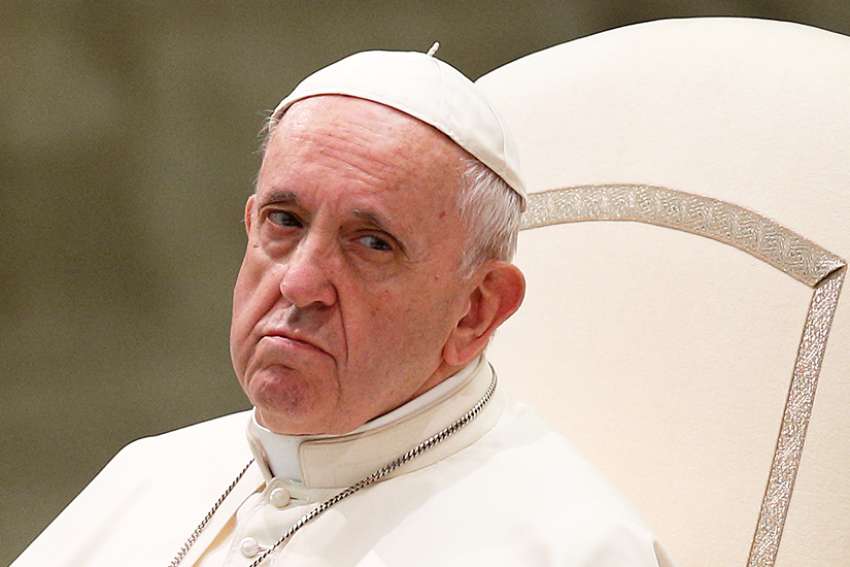Flagrant abuses heaped on theo-political divisions piled atop hierarchical slackness dating back to the alarming lassitude of Quebec’s bishops on the issue of euthanasia made me wonder aloud to friends whether the Church that I love like life itself wasn’t, in fact, already leaving me.
As McGill University theologian Douglas Farrow recently affirmed in a blistering text for The Catholic World Report, such concern is hardly unjustified. Farrow warned that the McCarrick scandal “is just one powerful gust in the swirling tempest that now surrounds Francis and threatens to capsize both his pontificate and the barque of Peter itself.”
Farrow contends the threat stems from Francis’ confusion of his role as Vicar of Christ. Francis, he says, appears to see himself as something more than the successor to Peter. The Holy Father shows signs, Farrow argues, of vesting all authority in the Petrine succession when, in truth, that authority is entirely and exclusively God’s.
“Peter exercises something of the sovereignty vested by God in Christ, for Christ has in turn vested that something in him and his successors, together with the apostolic college, in the form of magisterial judgment and binding juridical authority in the daily life of the Church. But Peter is not himself a sovereign, properly speaking; he is merely a steward, with very specific responsibilities,” Farrow writes.
“The Church is the barque of Peter only in the sense that Peter is asked to remain watchful on the bridge. He is certainly not invited to seize the helm and steer the ship on some course of his own, fancying that his sails are trimmed to the Spirit,” he adds.
Farrow equates the present Church to a ship with “broken masts and rotten planks” being “driven onto the shoals” — a crisis that can only be averted if the apostolic college awakens and takes immediate corrective action.
Reading such words when I was near match point, I might have erroneously translated them into grounds for the sin of despair, that is into a final push away from Holy Mother Church and toward … toward … toward what exactly?
To borrow a phrase from my sainted namesake: “Lord, to whom would I go?” Which is not to suggest refusal to leave the Church means failure to find alternatives. On the contrary. It is to insist there is no need to seek out alternatives. The only true need is the need of the Church in her time of horrendous trouble. That is, in the Church’s need for me. Meaning, of course, my need for the Church.
To gain that recognition is to give the answer of beloved G.K. Chesterton when he was asked what is wrong with the world: “I am.”
What is wrong with the Church is what is wrong with the world, and I am what is wrong with them both. I am a sinner, too much inclined, in the gorgeous words of the Anglican Book of Common Prayer, to follow the devices and desires of my own heart. I share the characteristic with each of my seven billion fellow human beings.
Uniquely within the Christian Church I find the remediation for that human failing: the love that God and His Son share with us all. To whom else shall we turn?
For as Farrow emphasizes, even with his caustic criticism of current Vatican leadership, the Church will always right herself and “sail on (to) reach suddenly her destination.” The combined work of re-directed human hands and the Spirit’s guidance ensures it.
Or as my most brilliant Catholic friend consoled me this summer, quoting Hilaire Belloc: “The Catholic Church is an institution I am bound to hold divine, but for unbelievers a proof of its divinity might be found in the fact that no merely human institution conducted with such knavish imbecility would have lasted a fortnight.”
Yet last she does, the gates of Hell itself unable to prevail against her.
(Stockland is publisher of Convivium.ca and senior fellow with Cardus.)


